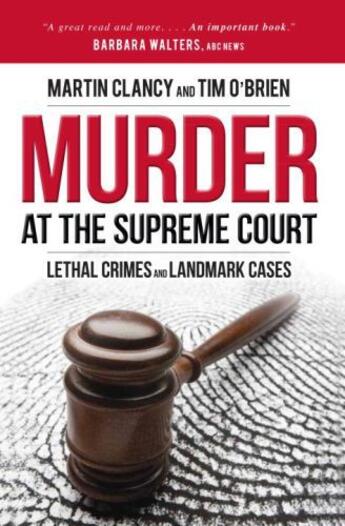-
Nombre de pages : (-)
-
Collection :
(-)
-
Genre :
(-)
-
Thème :
Non attribué
-
Prix littéraire(s) :
(-)
Résumé:
This in-depth yet highly accessible books provides compelling human stories that illuminate the thorny legal issues behind the most noteworthy capital cases. In 1969, the Supreme Court justices cast votes in secret that could have signaled the end of the death penalty. Later, the justices'... Voir plus
This in-depth yet highly accessible books provides compelling human stories that illuminate the thorny legal issues behind the most noteworthy capital cases. In 1969, the Supreme Court justices cast votes in secret that could have signaled the end of the death penalty. Later, the justices' resolve began to unravel. Why? What were the consequences for the rule of law and for the life at stake in the case? These are some of the fascinating questions answered in Murder at the Supreme Court. Veteran journalists Martin Clancy and Tim O'Brien not only pull back the curtain of secrecy that surrounds Supreme Court deliberations but also reveal the crucial links between landmark capital-punishment cases and the lethal crimes at their root. The authors take readers to crime scenes, holding cells, jury rooms, autopsy suites, and execution chambers to provide true-life reporting on vicious criminals and the haphazard judicial system that punishes them. The cases reported are truly "the cases that made the law." They have defined the parameters that judges must follow for a death sentence to stand up on appeal. Beyond the obvious questions regarding the dubious deterrent effect of capital punishment or whether retribution is sufficient justification for the death penalty (regardless of the heinous nature of the crimes committed), the cases and crimes examined in this book raise other confounding issues: Is lethal injection really more humane than other methods of execution? Should a mentally ill killer be forcibly medicated to make him "well enough" to be executed? How does the race of the perpetrator or the victim influence sentencing? Is heinous rape a capital crime? How young is too young to be executed?
Donner votre avis















